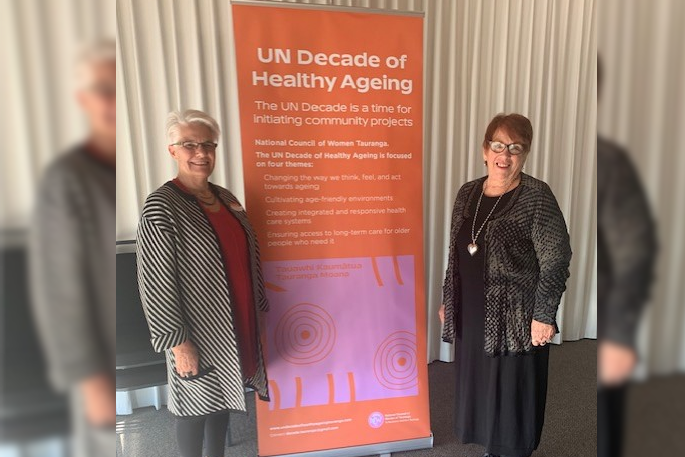Tauranga, New Zealand's highest ageing major city, is the first to be backed by the United Nation's Decade of Healthy Ageing project.
Stakeholders from across health, council, and social services are coming together to launch the joint United Nation's UN and World Health Organisation WHO Decade of Healthy Ageing project, and to discover what that looks like for Tauranga – the first city in NZ to adopt the campaign's ethos and principles.
The Western Bay of Plenty Primary Health Organisation, WBOP PHO, is supporting the project and CEO Lindsey Webber says the project particularly resonates in Bay.
'The project signals a vital time for planners, policymakers, and community agencies to include elders in co-design of community amenities, mobility options and healthcare services.
'Participation in housing, transport, health and social service planning ensures that they are valued and able to contribute their wisdom and knowledge to the appropriate use of resources and functional outcomes.”
The four key themes being considered today include changing how we think, feel and act towards age and ageing; developing communities in ways that foster the abilities of older people; delivering person-centred care and primary health service that are responsive to older people; and providing older people access to long-term care when they need it.
Tauranga National Council of Women (NCW) has initiated the collaborative project with key agencies and community organisations. Pauline Bennett, President of NCW, says, 'We want to encourage community initiatives that foster the purpose of these four key themes.”
NCW representative and Decade of Health Ageing Facilitator Carole Gordon says community initiatives will enhance sustainable community well-being and improve the lives of our elders, their families and whānau.
'Society needs to understand what today's generation of elders desire to enable them to stay healthy, independent, purposeful and connected,” explains Carole.
'The Decade of Healthy Ageing is a vital platform for achieving sustainable environments, age-friendly cities, communities, and social cohesion. An age-friendly city with hyperlocal communities is accessible and designed for an age-diverse population, inclusion, cohesion, and care.”
The WHO has just published an updated 2023 version Age-Friendly City Guide to assist Local Governments and communities progress change.
'Building age-friendly community ecosystems enable people to stay active and keep connected, while still being able to contribute their elder wisdom and knowledge to economic, social, and cultural life,” adds Carole.
Tauranga is a growth city that is part of a wider sub-region of the Western Bay of Plenty that has a rapidly growing ageing population along with youthful Māori and Pacific communities. In 2023, median ages were: Bay of Plenty, 39.9 years; Tauranga City, 39.7 years; Western Bay of Plenty District Council, 45.1 years. In Tauranga today 8,500 people are 80 and over 90 years of age.
In 2022 it was estimated that 21.7 per cent of Tauranga's population are people 65, with numbers reaching 30 per cent by 2030. The number of Māori elders 65-100+ are expected to double from 2021 to 2038. The number of elders over 85 years is expected to increase rapidly by over 400 per cent in the coming decades. Western Bay of Plenty District Council is home to 13,800 people 65 to over 100 years.



2 comments
Commendable.
Posted on 29-06-2023 12:11 | By morepork
But most elderly people don't want a lot of fuss, or seek for 'special treatment'. For myself, I'm happy if people just observe common courtesy (increasingly rare, sadly...) I'm happy to have neighbours who are friendly and can be relied on if I needed help, but are not intrusive. Generally, the aged ask little of society.
Details
Posted on 01-07-2023 11:33 | By beejay8
A lot of talk but light on detail and practical examples. What will you actually do?
Leave a Comment
You must be logged in to make a comment.